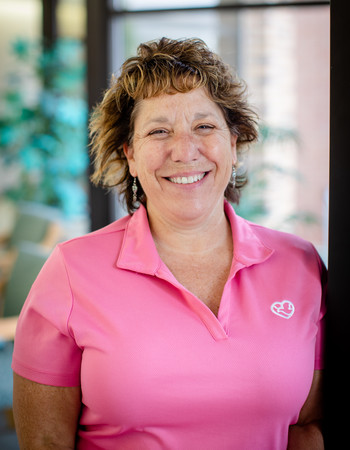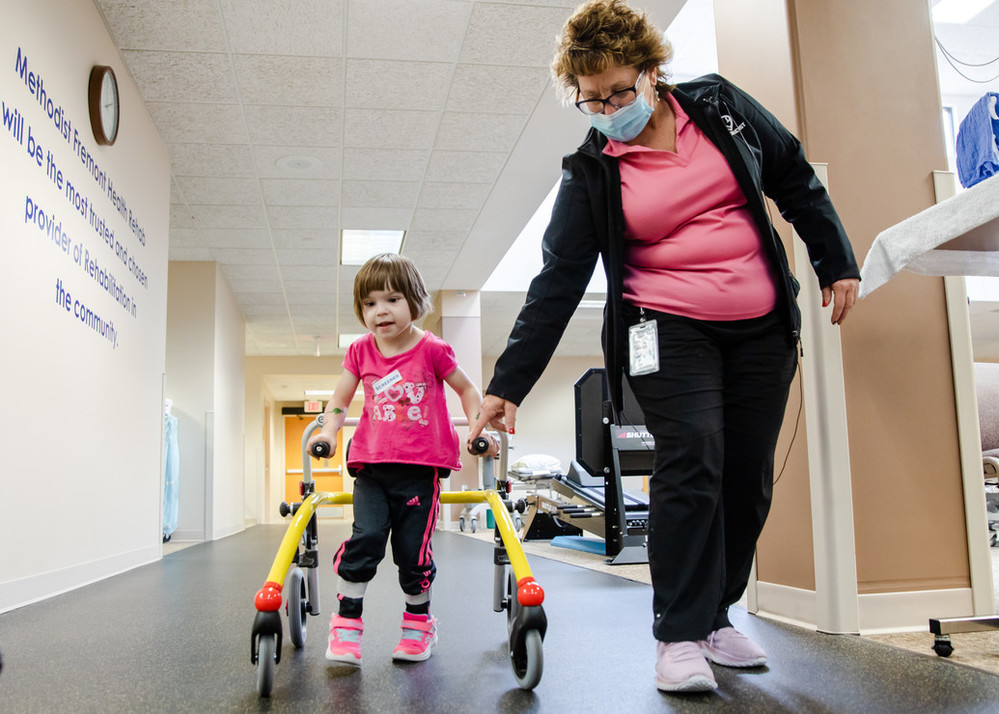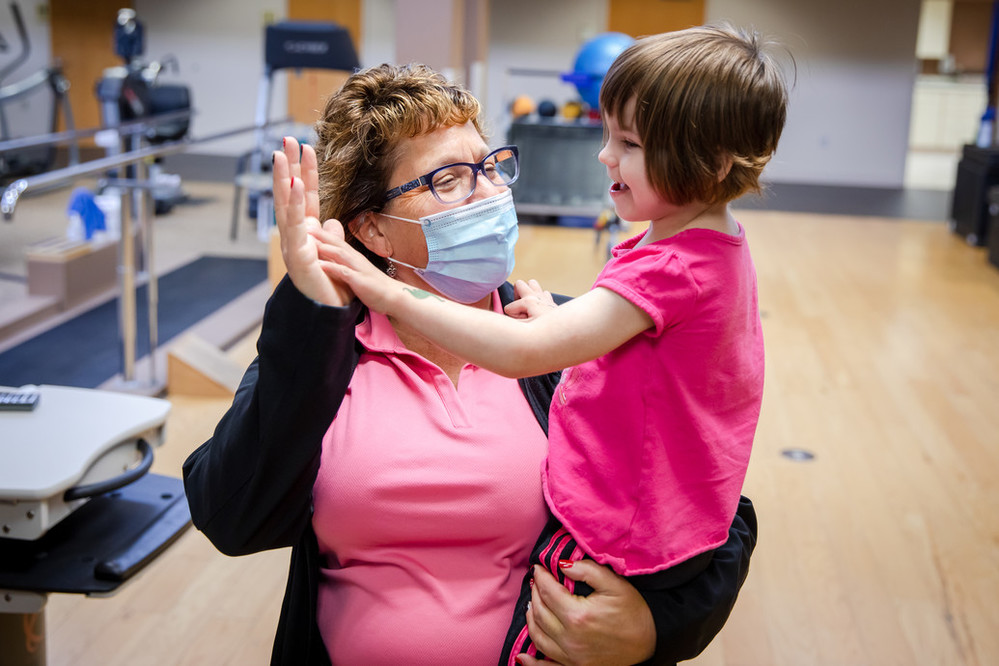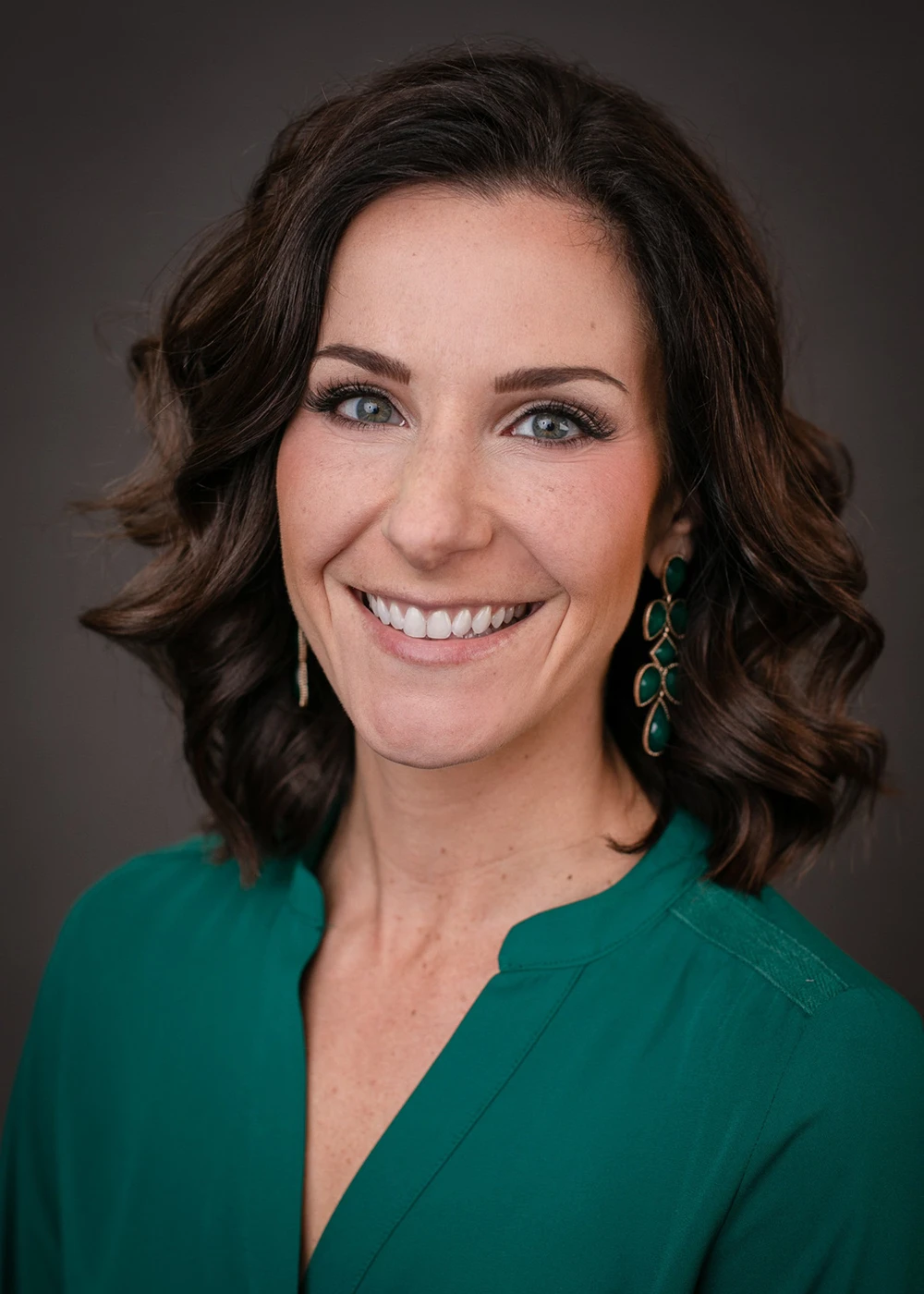
The Meaning of Care Magazine
Making a Big, Rehabilitative Difference in the Lives of Little Patients
Published: Dec. 6, 2021As she stared at the same set of stairs she’s gone up and down countless times before, 4-year-old Elizabeth Matteo – who was recently diagnosed with cerebral palsy – decided it wasn’t fun anymore. She refused to climb them.
“We had to change course,” said Karen Felderman, OTR/L, CLT, PTA, an occupational therapist with Methodist Fremont Health’s Pediatric Rehabilitation Program. “We know she loves princesses, so we pretended it was a castle.”
Princess Elizabeth had to use the guardrail and her legs – stabilized by a pair of ankle foot orthotic braces – to sidestep her way to the very top.
Eventually, she did.
“It takes a child without challenges thousands of attempts before they master a skill,” Felderman said. “For a child with challenges? It takes twice as many – if not, more. So how do you keep those children practicing long enough to be successful? That’s always our biggest hurdle – figuring out how to change the game to keep them engaged.”
Increased Engagement, Individualized Care

When Felderman began working in Fremont almost 10 years ago, she made it clear that she wanted the hospital’s existing rehabilitation services expanded to treat children.
“I wanted a pediatric program,” she said. “There was such a hole in the Fremont area for something like that.”
Over the past nine years, the program she dreamed of has continued to grow, providing physical, occupational and speech therapy for children who:
- Are recovering from traumatic injuries
- Have developmental delays
- Need adaptive equipment assistance
- Struggle with speech and/or swallowing
- Were diagnosed with behavioral and/or congenital disorders
But simply treating children wasn’t enough for Felderman.
“Engagement is huge,” she said. “Especially in the world of pediatric rehab.”
Less than a year ago, her goal of increased engagement and more individualized care prompted additional training for staff, partnerships with area school districts and a dedicated room for the referral-based program. The former office space on the main level of Methodist Fremont Health Hospital is now a kid-friendly destination full of bright primary colors.
It’s equipped with specialized toys, puzzles, tables, chairs, balance balls, mats, writing boards, learning tools and more.
“Children always perform better with play,” Felderman said. “But it has to be fun and engaging. If it’s not, it’s not going to work. You’ll end up with kids who won’t do what you’re asking of them or kids who won’t try their hardest. And they have to give good effort if we want to see improvement.”
But sometimes, Felderman added, children need more than bright colors and fancy toys.
“We’ll do therapy wherever it works best. Sometimes that’s going down the hall to the gift shop. Sometimes that’s in a school gym. Sometimes that’s on a playground. And sometimes that’s in their own home. We use our entire environment – including the community – to give these kids the best opportunity to succeed.”
Seeing Success
Success is all Elizabeth’s mother, Kristen, has seen from the program. Her 9-year-old son, also living with cerebral palsy, finished therapy four years ago.

“And now, he’s thriving,” Kristen said. “He went from not being able to walk on his own to running, playing soccer and doing well in school.”
And Elizabeth, who’s been enrolled in the program for two years, is showing similar improvements.
“When I watch her in her walker, now, it’s like she’s almost running,” Kristen said. “Before, she couldn’t use it very well at all. And she was recently timed standing by herself. She stood for nine seconds. That just amazed me. She’s come so far.”
Despite a 30-plus year career working with patients of all ages, Felderman, too, is most amazed by the difference her team continues making in the lives of children.
“When you see a child who can’t eat at all finally begin to chew,” she said. “When you see them swallow a bite of a banana for the first time – that’s pretty amazing. There’s so much work and effort that goes into something like that, and the payoff is knowing that child is so much closer to enjoying a meal with their family – something we all probably take for granted.”
Therapeutic Connection
As much as she values the daily progress of her patients, Felderman said nothing compares to the relationships she’s able to build with them and their parents – a group she feels closely connected to because of her own child’s journey.
“I swore up and down that she was not going to use an adaptive device,” Felderman said of her 23-year-old daughter who suffered a brain injury at birth. “She was going to do everything independently. That’s what you get with a therapist for a mom. But at some point, I had to finally say, ‘You know what? She can’t do this.’ So, she now uses a wheelchair for longer distances. And that’s OK! Especially if I want her to remain engaged in her environment and live life as fully as possible.”
Helping other parents arrive at the same kind of peace and acceptance has become part of Felderman’s mission.
“Therapy can be hard to accept,” she said. “Especially for the parents. No one wants to be told their child can’t do something. But it’s really no different than getting additional baseball training for your child because you want them to be a star baseball player. This is training for a better quality of life.”

And the training her team provides children is often just as therapeutic for the adults who love them.
“They’ve done such amazing things with both our kids,” Kristen said. “It gives me so much pride to see how strong and independent they’ve both become, and it’s all thanks to their therapists and this program. I really don’t know where we’d be without it.”
More Resources
- Read more from the winter 2021 issue of The Meaning of Care Magazine.
- Find a pediatrician.
- Learn more about physical, occupational and speech therapy at Methodist.


